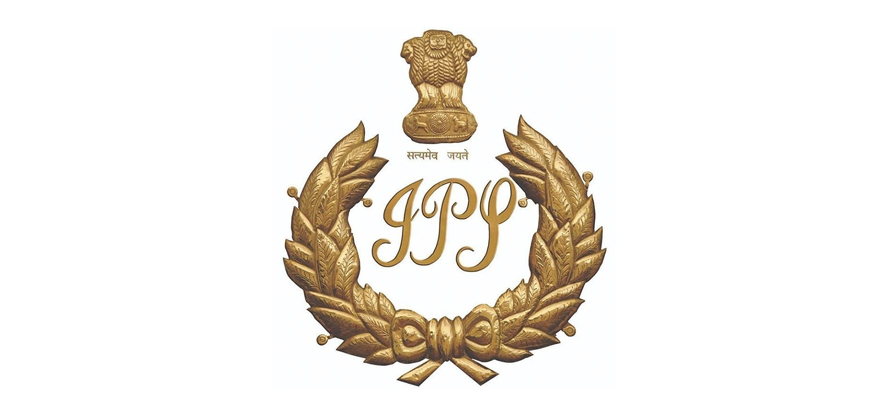IPS stands for Indian Police Service. Indian Police Service is a common name to describe India’s police force. It is one of the largest police forces in the world and has a strength of over 600,000 officers. They are responsible for maintaining law and order, preventing crime, conducting investigations and collecting intelligence, traffic policing (enforcing traffic rules) as well as enforcement of various other laws.
India has 859 Police Commissionerates across its country, which are headed by an officer who is called a Commissioner of Police. The Indian states have their own state police forces with each under the control of respective Inspector-Generals who report to the Director General in Delhi.
What is the qualification for IPS?
The eligibility for joining the Indian Police Service is a combination of academic and professional qualification.
The minimum educational requirement is the pass in at least one of the following 7 marks out of 10 with at least 50% to qualify for an UPSC (Union Public Service Commission) examination conducted under the Civil Services Examination Regulations, 1966. The minimum educational requirement is the pass in at least one of the following 7 marks out of 10 with at least 50% to qualify for an UPSC (Union Public Service Commission) examination conducted under the Civil Services Examination Regulations, 1966.
Out of all candidates who qualify, only successful candidates will be added to the central pool and then they will be called for various other rounds of written tests and interviews. If qualified in that too, then they are eligible to start their training in Police Training College. After completion of training, successful candidates are allotted their states and Union Territories and joined as Assistant Superintendent of Police (ASP) popularly known as SSP in local police departments.
What rank is IPS?
All ranks in IPS are equivalent to the ranks and grades of other countries. In a country like India, where administrative and local political superiors have limited power of their own, the whole system has to be set up and administered through a chain of reforms. The system is controlled at the central level under various departments and agencies. This chain of people from the Director General’s Office downwards are responsible for making sure that all systems are followed properly by all state police organizations.
The control comes from a number of directorates that execute different kinds of services to boost respect for authority and maintain proper system, rules and regulations for proper functioning. Once the administration is ready and in place, police officers are appointed as per their rank and experience.
The whole structure of the Indian Police Service is established in a manner that all SSPs or SPs are uniformed members of Indian Police Services (IPS) which works under Civil Services of India. The officers work out their career progression according to the seniority system.
The uniform of an officer is decided by his rank, experience and state. IPS officers wear dark blue uniforms with golden buttons and shoulder insignia. The dark blue colour symbolises honesty, integrity, fairness and justice. The shoulder insignia has two leaves on either side of a star as used by other All India Services officers at similar ranks.
What is their salary?
The IPS officer’s salary is decided based on his rank and experience. The starting salary of a DSP or Deputy Superintendent of Police is 48,000 rupees. The officer is finally promoted to the level of Inspector General of Police (IGP) and can earn from 90,000 rupees to 1,10,000 rupees a month.
The IGP earns more than a state chief secretary or district collector who are responsible for the overall administrative work of a state in India.
What is the age limit for this?
The age limit to join IPS is 21 to 32 years for General category candidates and 27 to 37 years for reserved categories. Candidates who are appearing for the UPSC exam must be below 30 years of age.
After completing the training course, a candidate has 5 years service in a state police department.
What is the procedure to join this?
The basic process of joining Indian Police Service is as follows:
- Apply online on UPSC (Union Public Service Commission) official website or offline obtainable from any Post Office in India or download it from its official website.
- Fill up the application form with all details and past academic records.
- Send the hard copy of it along with required documents to the UPSC office at New Delhi.
- Check your profile in UPSC website from time to time for any updates on your application status and finally.
- You are called for an interview if selected by UPSC to sit in a group of other candidates who have qualified the written test conducted by it. If you get selected in a written test, you will be called for a mental ability test, a physical efficiency test and then an interview is conducted as a final round.
- If you clear all these rounds, then you will be added to the central pool of candidates who will finally be allotted their states and Union Territories by the UPSC after completion of all formalities.
What is the importance of this?
Being a Central Service, IPS officers are employed and paid through the Union Government. Also, they serve in every state and union territory of India except Jammu and Kashmir. An IAS officer works in a very limited radius whereas the IPS officer has an opportunity to work anywhere in India. As a result, an IPS officer gets a chance to interact with people from different backgrounds, cultures and religions.
The career advancement of an IPS officer is rapid providing him with unique opportunities for betterment in quick time.
| Homepage | Click Hear |

